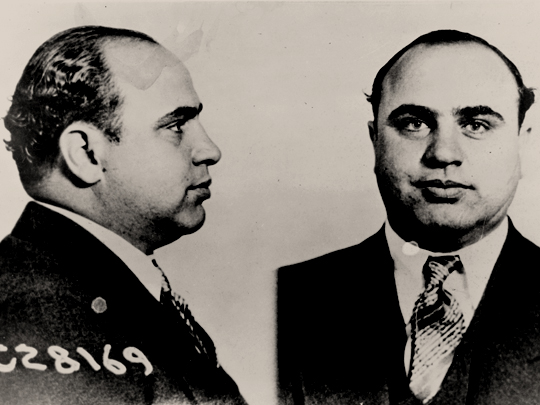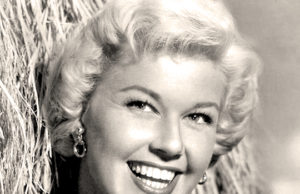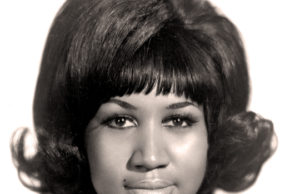United States Bureau of Prisons / Wikimedia Commons / CC-BY-SA-3.0 / GFDL
1 – Al Capone Takes Over the Chicago Bootlegging Racket
After an attempt on his life in 1925 by rival mobsters, mob boss Johnny Torrio decided to leave the bootlegging business and return to Italy, turning over the entire operation to Al Capone.
Capone ignored his mentor’s advice to maintain a low profile and instead, moved his headquarters to a plush suite in the Metropole Hotel in downtown Chicago.
From there, he began living a luxurious and public lifestyle, spending lavishly, although always in cash to avoid a trial.
Newspapers of the time estimated Capone’s operations generated $100 million in revenue annually.
The press followed Capone’s with intrigue, and he gained public sympathy with his gregarious and generous personality.
He was considered a Robin Hood-type figure by some, and as anti-Prohibition resentment grew, a rebel who worked on the side of the people.
However, in later years, as Capone’s name increasingly became connected with brutal violence, his popularity waned.
2 – Adolf Hitler Publishes Volume I of ‘Mein Kampf’
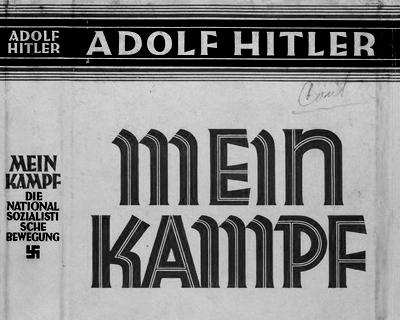
Mein Kampf (“My Struggle” in English) is an autobiography by the National Socialist leader Adolf Hitler, in which he outlines his political ideology and future plans for Germany.
Volume 1 was published on 18 July 1925, and Volume 2 in December 1926. The book had been edited by Hitler’s deputy Rudolf Hess.
Hitler dictated the book to Hess while imprisoned for what he considered to be “political crimes” following his failed Beer Hall Putsch in Munich in November 1923.
Although Hitler received many visitors initially, he soon devoted himself entirely to the book.
As he continued, Hitler realized that it would have to be a two-volume work, with the first volume scheduled for release in early 1925.
In 2016, following the expiry of the copyright held by the Bavarian state government, Mein Kampf was republished in Germany for the first time since 1945.
3 – Schoolteacher John T. Scopes is Arrested in Tennessee for teaching the Theory of Evolution
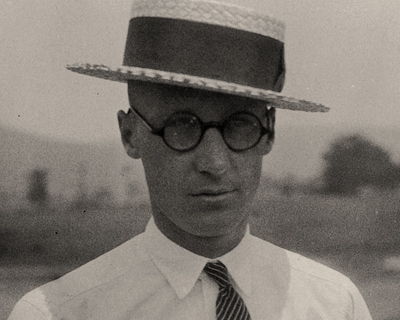
The Scopes Trial, commonly referred to as the Scopes Monkey Trial, was an American legal case in 1925 in which a substitute high school teacher, John Scopes, was accused of violating Tennessee’s Butler Act.
This Act had made it unlawful to teach human evolution in any state-funded school. The trial was deliberately staged to attract publicity to the small town of Dayton, Tennessee, where it was held.
Scopes was found guilty and fined $100, but the verdict was overturned on a technicality.
The trial served its purpose of drawing intense national publicity, as national reporters flocked to Dayton to cover the big-name lawyers who had agreed to represent each side.
William Jennings Bryan, a three-time presidential candidate, argued for the prosecution, while Clarence Darrow, the famed defense attorney, spoke for Scopes.
The trial publicized the Fundamentalist-Modernist Controversy, which set Modernists, who said evolution was not inconsistent with religion, against Fundamentalists, who said the word of God as revealed in the Bible took priority over all human knowledge.
The case was seen as both a theological contest and a trial on whether modern science should be taught in schools.


